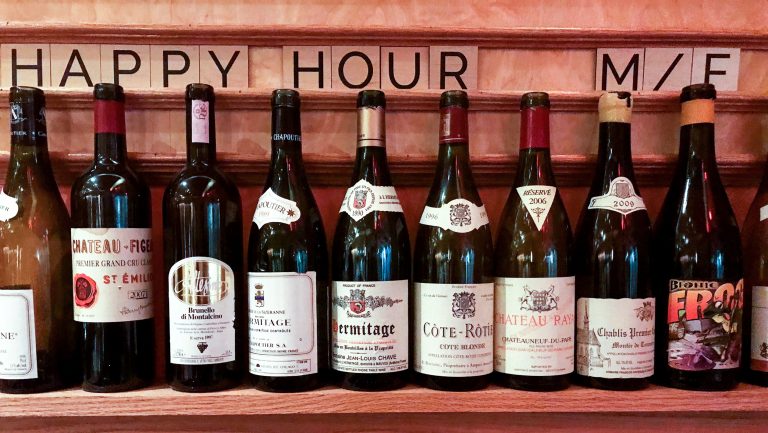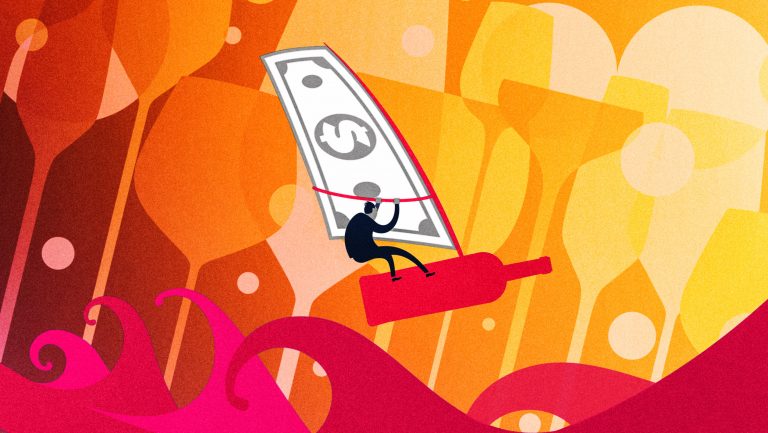For many professionals, the New Year represents a time of change, with positive resolutions and healthier habits fostering a sense of optimism for the months ahead. But for wine and spirits reps, the first quarter can be kind of a downer. Accounts are most likely tasting and buying infrequently now that the big holiday boom has passed. So making your monthly sales goal may be hardest right now. But don’t get down on yourself just yet. SevenFifty Daily talked with sales veterans around the country, scavenging for tips to help you sell more effectively. Here’s what we uncovered:
1. Don’t Stress
First, take a moment to breathe. Remember that all sales representatives are facing the same January challenge that you are. This isn’t a “you” thing; it’s a “Q1” thing. The key to your mental sanity? Don’t take the lack of buyer enthusiasm personally.
2. See the Bigger Picture
Viewing your goals as year-round rather than just month-to-month aims will help you ride out slower times. “This job is not a month-to-month thing … You have to view it as a marathon, not a sprint,” says Richard Jones, the strategic account manager at Epic Wines and Spirits in Santa Rosa, California. Understanding and embracing larger goals will help you put things into perspective when the pressure gets to you.

Don’t miss the latest drinks industry news and insights. Sign up for our award-winning newsletters and get insider intel, resources, and trends delivered to your inbox every week.
3. Think Differently
Just because it’s winter doesn’t mean that full-bodied reds are the only thing in style. When packing your bag for sales calls, grab a few unexpected bottles, like unique, food-friendly rosés or interesting high-acid whites to set yourself apart from the reps who are doubling down on big, bold reds.

Do Everything Better
What’s holding you back? Recharge, refresh, and get ready to make 2019 your strongest year yet
4. Be Present
Lisa Stevens, a fine-wine specialist for Henry Wine Group in Benicia, California, recommends getting in front of buyers as much as possible. “Be present. If you’re not there, then you don’t have the opportunity,” she says. Stevens recently visited an account socially, without the intention of making a sale. But because she was right there in front of the buyer, he struck up a conversation about affordable Chardonnay options. “He wouldn’t have asked me if I hadn’t been right there in front of him,” she says. “You definitely have to be present at all times—that’s the golden rule for this whole job.”
Emily Daman, a Los Angeles–based account executive for Wine Warehouse, notes that the postholiday period is a great time to schedule tasting appointments. “This sounds so obvious, but it’s really the time to be out in front of [buyers]—when they aren’t so crazed,” she says. You’ll most likely get more of their time and attention now than during busier months.
5. Lend a Hand
If your client bought too much during the holidays, “help them with solutions to move through inventory,” Daman says. Depending on your company’s resources and your client’s needs, you may be able to assist with more than ideas. For an on-premise account, that could mean designing drink menus, creating featured cocktails, or crafting happy-hour specials.
For off-premise, Stevens suggests hosting themed tastings. “Your accounts are slow, and they don’t want to be slow,” she says. These added-value services can pay dividends throughout the year. And, Stevens notes, “it’s actually the perfect time to bond with your buyers.”
6. Know Your Buyer
“Every buyer is different,” says Jones, of Epic Wines and Spirits. Assuming that all buyers’ palates will gravitate toward the same types of wines or spirits is risky. Reflect on what your buyers feature on their lists, and what they’ve been attracted to in the past. Then make your individual tasting selections for that account. According to Jones, you’re more likely to get a hit with a curated selection.
7. Anticipate Client Needs
Just as every buyer is unique, so is every store. Some accounts may be in search of bargain sellers because their clients spend less after the holidays; others will be looking to restock high-end, celebratory bottles for Valentine’s Day. Listen to your buyers and be familiar with your accounts’ clientele to better understand their potential post-holiday needs.
8. Plan Ahead
“I would say advanced planning—laying the groundwork ahead of the slow months—is key to success,” says Daman. She explains that for her L.A.-based business, restaurants are generally slower but hotels are in the midst of their busy awards season. “[Hotel] banquet wine lists are usually locked up for the year,” she says, “so that takes a lot of advanced planning.” She also recommends being on the lookout for last-minute opportunities, such as themed cocktails for events.
9. Prioritize Your Relationships
For Jones, trust is everything. Despite the need to push certain monthly products, he says, valuing a relationship with your client is a much better investment. “Success in this business is based on relationships,” Jones says, “and what I’ve found is that you need to establish that your business isn’t always just about what you need.” Repeatedly showing items solely because you need to reach personal goals will become apparent sooner or later. “If your buyer knows that you’re interested in their success as much as you are your own,” says Jones, “you’re more than likely to get the sale in good times and bad.”
10. Expand Your Network
The beginning of the year is “the best time to try and meet new people,” says Kat Heverin, a former sales representative for Domenico Valentino, based in New York City. Both buyers and reps are in the same slow period, which makes for a great time to build relationships that will potentially carry you through busier months.
11. Evaluate Your Accounts
Build stability within your route. You may be able to avoid slowdowns by working with accounts across various geographic locations, venue types, and clientele bases. For example, “strategizing neighborhoods where there’s less volatility—that’s to say, neighborhoods where people aren’t out of town frequently—is key,” says Dalton Cannizzo, a New York City wine and spirits sales representative for Martin Scott Wines. No matter how great your buyer is, if the customers aren’t present, the business won’t be, either.
12. Show Gratitude
According to Heverin, now is a great time to say thank you for all the business you’ve been shown the past year. “Gratitude is underappreciated in our business—and imperative,” she says. Daman recommends treating your buyers to lunch or drinks to show your appreciation. Start the year off on the right foot by being grateful—both for the position you have and for the buyers you work with. You can never go wrong with kindness.

Dispatch
Sign up for our award-winning newsletter
Don’t miss the latest drinks industry news and insights—delivered to your inbox every week.
Vicki Denig is a wine, spirits, and travel journalist based between New York and Paris. Her work regularly appears in Decanter, WineSearcher, Food & Wine, and more. She also works as a content creator / social media manager for a list of prestigious clients, including Beaupierre Wine & Spirits, Corkbuzz, Veritas Imports, and Crurated.







